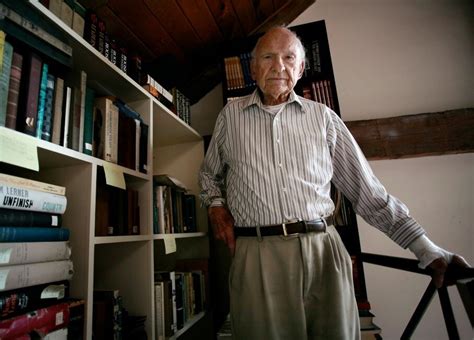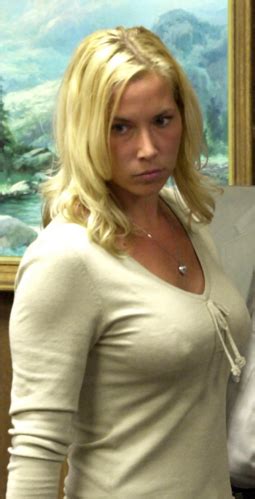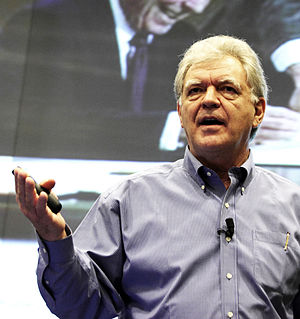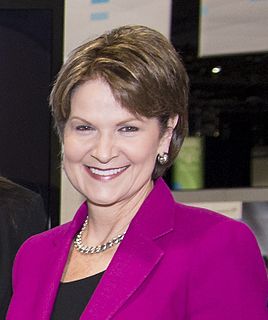A Quote by James MacGregor Burns
To elevate the goals of humankind, to achieve high moral purpose, to realize major intended change, leaders must thrust themselves into the most intractable processes and structures of history and ultimately master them.
Related Quotes
Some people may have greatness thrust upon them. Very few have excellence thrust upon them. They achieve it. They do not achieve it unwittingly, by “doin' what comes naturally”; and they don't stumble into it in the course of amusing themselves. All excellence involves discipline and tenacity of purpose.
What is clear is that business leaders must commit to champion change - to be transparent about their goals for change, to align their incentives systems to drive the change, and to make sure their work environments are flexible in a way that allows men and women who choose to work to be able to achieve all of their potential.
No one can dictate purpose to another. We discover it for ourselves. Typically leaders know what makes them tick so they do have a purpose, be it to advance their career, achieve some wealth, and be recognized for their efforts. Where they need help is reminding themselves of why they chose their career and their company. They also need to decide periodically if they need to do something new and different. Purpose is an inner compass that points us in the right direction.
A hallmark of high performance leaders is the ability to influence others through all levels and types of communication, from simple interactions to difficult conversations and more complex conflicts, in order to achieve greater team and organizational alignment. High performing leaders are able to unite diverse team members by building common goals and even shared emotions by engaging in powerful and effective dialogue.
Good leaders set vision, missions, and goals. Great leaders inspire every follower at every level to internalize their purpose, and to understand that their purpose goes far beyond the mere details of their job. When everyone is united in purpose, a positive purpose that serves not only the organization but also, hopefully, the world beyond it, you have a winning team.
Leaders must exemplify integrity and earn the trust of their teams through their everyday actions. When you do this, you set high standards for everyone at your company. And when you do so with positive energy and enthusiasm for shared goals and purpose, you can deeply connect with your team and customers.
The only religion that can satisfy today's ideal is a religion that will give consecration to life, and direction to human endeavor, inspire men with faith in themselves, dedicate them to high moral purpose, and give them the strength to live through their failures, and to face with high courage their supreme tragedies.
Inanimate objects can be classified scientifically into three major categories: those that don't work, those that break down and those that get lost. The goal of all inanimate objects is to resist man and ultimately to defeat him, and the three major classifications are based on the method each object uses to achieve its purpose. As a general rule, any object capable of breaking down at the moment when it is most needed will do so.
You must ask, "What do we mean by great results?" Your goals don't have to be quantifiable, but they do have to be describable. Some leaders try to insist, "The only acceptable goals are measurable," but that's actually an undisciplined statement. Lots of goals-beauty, quality, life change, love-are worthy but not quantifiable. But you do have to be able to tell if you're making progress.



































